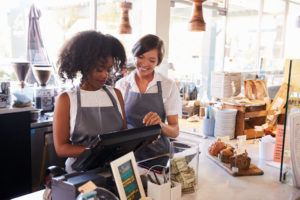The popularity of online pharmacies is a testament to the ease, convenience, and sense of privacy that e-commerce offers consumers. Unfortunately, such popularity also opens the opportunity for malicious people to make money by selling fake and dangerous medicine to customers seeking discrete ways to purchase their goods. It’s not surprising that medicine that customers would otherwise be embarrassed to purchase, such as erectile dysfunction drugs, is one of the more commonly counterfeited products.
Why is buying from a fake online pharmacy bad?
- Many times, the drugs online are cheaper, which means our wallet doesn’t take too much of a hit. But fake online pharmacies put people in danger because they’re not selling you the genuine medicine you think you are getting. Instead, they sell fake and substandard versions of the approved drugs.
- When you depend on a drug to do what is intended, taking something that does not have the right ingredients can put your health at risk. If you’re not yet convinced that fake drugs are harmful, check out this interactive guide to the “Hidden Poisons in Counterfeit Medications” (brought to you by the Partnership for Safe Medicines (PSM)).
- You are putting your personal and financial safety at risk by providing credit card and other personal information and can download damaging files (like spyware) onto your computer.
So how do you know when you have stumbled upon a fake pharmacy?
Here’s a list from great resources such as;
- FDA’s Be Safe RX program
- Australian Competition & Consumer Commission SCAMwatch program
Keep in mind that some of these red flags (but not all!) may be different depending on what country you are in and the regulations surrounding. Check with your appropriate regulatory body for more details.
Red flags:
- You can buy prescription medicine without the prescription
- It is not licensed by the board of pharmacy or other regulatory body. Check your country’s regulatory body website for more information on any licensing boards for pharmacies. The U.S., for example, certifies online pharmacies through VIPPS accreditation
- The prices of the drugs seem “too good to be true”
- They are sending you spam or unsolicited email, especially for cheap or hard-to-get pills. The subject title of the email has nothing to do with the products offered and/or there are incorrectly spelt words, random spaces and symbols in between words (to bypass spam filters)
- There is no sign of a physical address or the address does not exist
- There is no sign of a phone number or the number is non-working or does not connect you to a customer service representative. You should be able to speak to a pharmacist.
- The pharmacy claims to ship worldwide: drugs need to go through an approval process to be able to be distributed in different countries
- Any indication that the products require extra shipping time or have any fee relating to getting processed through customs
- All U.S. pharmacies ship via DHL, FedEx, or UPS only
- Getting “extra” medicine when you purchase X amount
What do you do when you encounter a fake pharmacy?
- First – check with your country’s regulatory body for any resource that lists all legitimate pharmacies to make sure that your suspicions are correct. The U.S. National Association of Boards of Pharmacy certifies legitimate online pharmacies through their VIPPS accreditation program.
- If you suspect that the pharmacy is fake, report it. Your country’s regulatory body should have a way to report suspicious pharmacies. Not sure who that is? The World Health Organization has listed the websites of medicines regulatory authorities around the world.
- Lastly, the PSM is a great source for more information on fake and substandard drugs. We highly recommend “The 5 Secrets Canadian Web Pharmacies Don’t Want You To Know.” For those interested in learning more about counterfeit medicine and joining the conversation to combat this global epidemic, the PSM is holding their annual interchange conference on October 24 in D.C. The annual event brings together policymakers, pharmaceutical manufacturers, patient advocates, law enforcement, healthcare professionals, and anti-counterfeiting companies to discuss the problem and solutions to the global scourge of pharmaceutical counterfeiting.
What are some other good tips that you have for those seeking to purchase medicine online?























